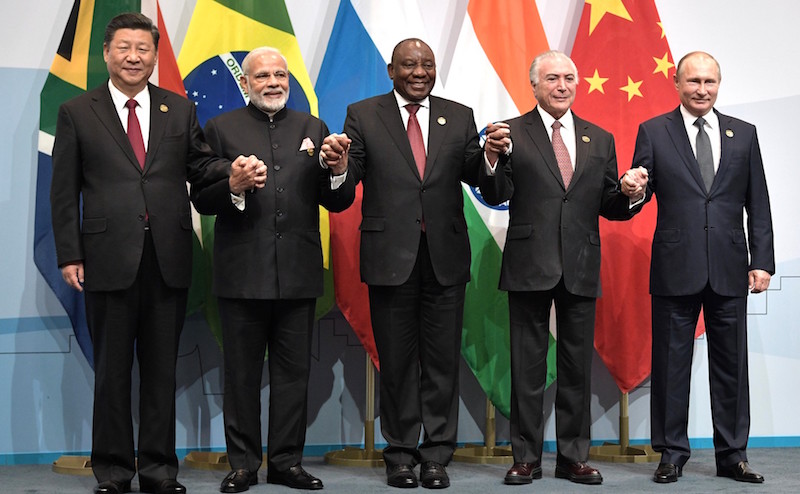In August 2014, the Economist published an article titled “This is Going to Hurt” which predicted the possible implications of American and European Union (EU) sanctions against Russia. It seems they were right, with the Economist publishing an article just three months later titled “Russia, A wounded Economy”. Russia’s dependency on oil has left it with few options to cope with the falling global oil prices and sanctions targeting its energy exports. As we enter 2015, Russian economists and global experts have declared the Russian economy to be at the brink of recession. The ruble is in the midst of a Currency Crisis and has depreciated in value by 100%. The ruble is currently valued at 66 rubles to one US dollar, compared to 6 months ago when it was valued at 34 rubles to the dollar.
The unexpected drop in global oil prices since Summer 2014, and American and EU economic sanctions in response to Russia’s annexation of Crimea, has tipped the Russian economy over the brink. However, a faulty Russian economy was evident long before the Russian annexation of Crimea. A lack of access to financing, a rise in capital flight, a prolonged period of stagnant growth and a climate of uncertainty, have all caused the value of the ruble to plummet. Russia’s high annual inflation rate of 11.4% and its recent interest rate hike to 17% in December 2014, have further worsened the situation. In 2014, the average inflation rate was 7.48% and the interest rate was at 7%.
The US imposed economic sanctions on Russia in March 2014 , and European Union followed with its own sanctions in Summer 2014. These sanctions have targeted major Russian banks and oil companies, and have imposed asset freezes and visa bans for individuals linked to President Putin’s inner circle. The sanctions have also mandated a ban on arms and technology exports to Russia’s oil and defense industries, crippling Russia’s energy export capabilities, which account for more than two thirds of Russia’s total exports.
The sanctions are intended to act as a disincentive for Russia to continue its military activity in Ukraine and sends a direct message to Russia for “threatening the sovereignty and territorial integrity of Ukraine.” Despite the sanctions having very direct and painful consequences on the Russian economy, Putin seems undeterred and continues on his foreign agenda of military intervention in Ukraine.
The sanctions on the Russian economy are predicted to last for the foreseeable future. Analysts expect the policy will not change until the situation in Ukraine changes. In December 2014, Obama signalled support for possible new sanctions against Russia, but the EU is divided on its stance. EU Sanctions against Russia have been effective but they have also negatively impacted large European companies that do business with and in Russia. France’s President François Hollande has called on the West to end sanctions against Russia, while Germany has expressed reluctance in continuing them, as German exports to Russia are valued at over $51 billion, the highest in the EU. However, some EU members, including the UK, Poland and the Baltic states do not want to lift sanctions. Overturning the sanctions would require a unanimous decision by all of the twenty eight EU member-states, which would prove difficult.
By continuing its military activity in Ukraine, Russia has lost key economic ties to the global economy and has further alienated itself from the Western political sphere. The ongoing Russia-Ukraine crisis also led to the cancellation of the 2014 G8 Summit in Sochi, which was later moved to Brussels and held as a G7 meeting; the cancellation of the EU- Russia Summit; and the suspension of negotiations over Russia’s bid to join the OECD (Organization for Economic Development & Corporation) and the International Energy Agency. Although Putin displays confidence that Russia will weather this storm, Russia’s political decisions have widened the divide between itself and the West. It has taken decades to thaw this tense relationship. To continue on this path will not only damage the Russian economy, but further inhibit post-cold war relations.




